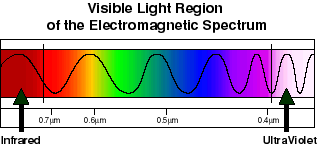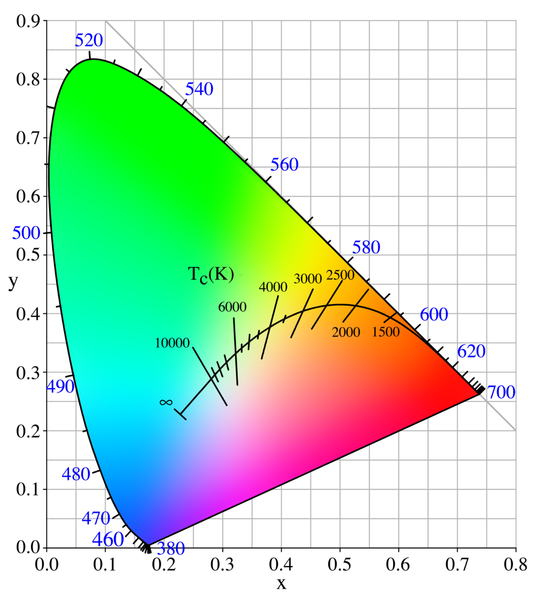I know that if I look at an electromagnetic wave with a wavelength between 400 and 700 nm, I will see it as having some color. Is the converse true? I.e., can every color be generated by a single electromagnetic wave (with a given wavelength)? Take, for instance, the RGB space. Every color there is generated by means of three waves (one red, one green, one blue). Could each of these colors also be generated by a single wave?
As an example, consider the visible light spectrum illustrated in the following figure. Adding a wave with a wavelength of approx. 650nm (red) and one with a wavelength of approx. 470nm (blue), I get the color magenta. From the picture, it would seem that I could also get this color with a single wave with a wavelength of approx. 420nm. So, could I do this for every conceivable color?


